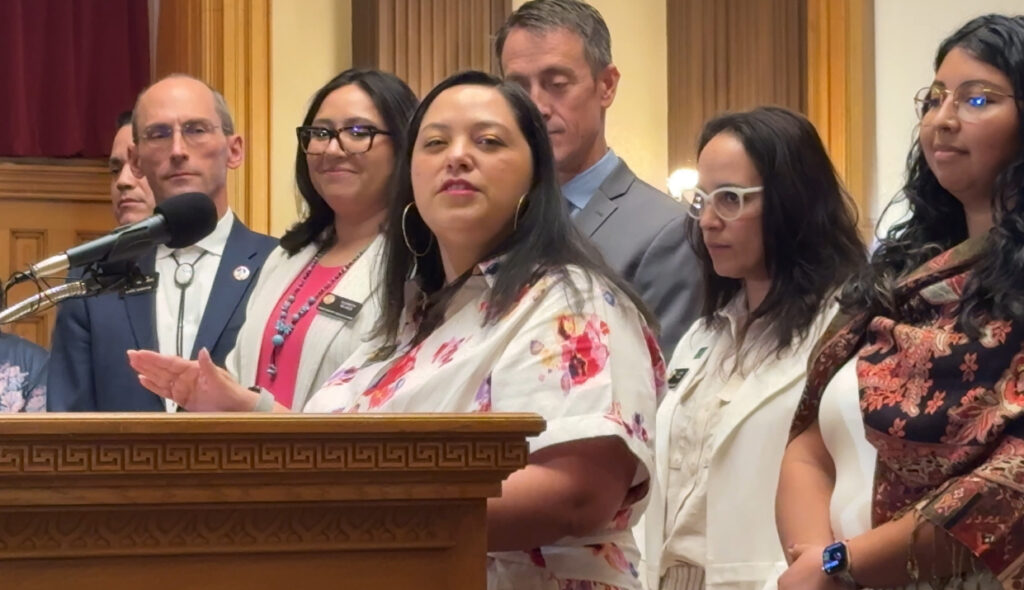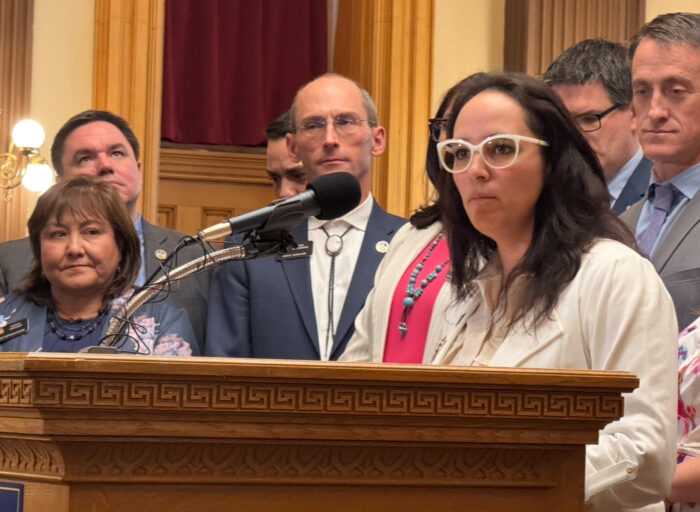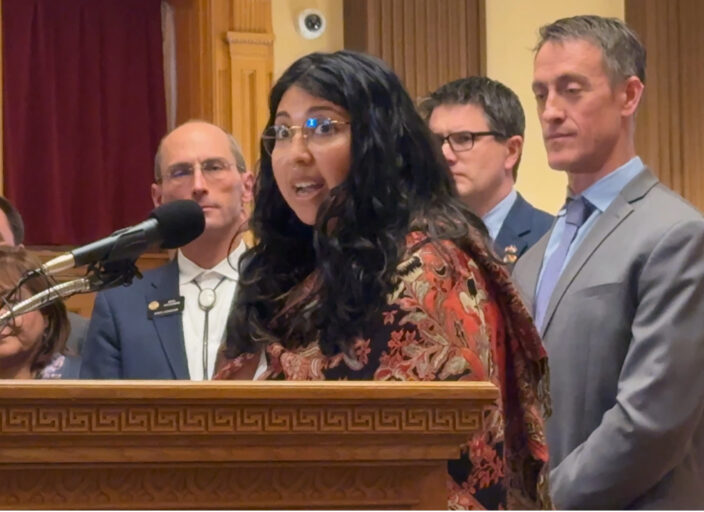
PROPONENTS | Senator Julie Gonzáles explains the details of SB25-276. (Photos/El Comercio de Colorado)
SB25-276 ADVANCES IN THE COLORADO SENATE
Newroom El Comercio de Colorado
Haga click aquí para leer la versión en español
Senate Bill SB25-276, sponsored by Senators Julie Gonzales and Mike Weissman and Representatives Elizabeth Velasco and Lorena García, has been approved by the Colorado Senate Appropriations Committee. The legislative proposal will now be debated on the Senate floor on Monday, April 21, 2025, at 10:00 a.m., during the Third Reading of Bills — a key moment for its final passage.
Senator Gonzales explained that the goal of the bill is to prevent Colorado from participating in immigration policies that violate constitutional rights. “We don’t control what ICE does, but we can decide what we do here in Colorado,” she stated. The legislator condemned the increase in punitive actions against migrants under the Trump administration and emphasized that this legislation seeks to protect due process and ensure safe access to essential services like healthcare and education.
What Does SB25-276 Propose?

ACCESS TO SCHOOLS AND HOSPITALS | Representative Lorena García comments on the bill.
The bill repeals the current requirement for individuals to submit an affidavit regarding their immigration status in order to obtain in-state tuition or a driver’s license under Colorado’s Road and Community Safety Act. It also prohibits jails from holding individuals for more than six hours after bail has been posted, solely to wait for ICE action.
Additionally, it allows individuals convicted of class 3 misdemeanors, traffic violations, or petty offenses to request the annulment of a guilty plea if they were not properly advised of the immigration consequences. The bill further restricts state, local, or school officials from sharing personal information with immigration authorities without a judicial warrant.
The legislation establishes civil penalties for violations and requires public schools, healthcare centers, and childcare facilities to implement clear protocols for responding to immigration enforcement operations. Representative Lorena García defended the bill by stating that “immigration enforcement is eroding the trust of immigrant families,” which causes many to avoid hospitals or schools out of fear of deportation. “This bill ensures that everyone can access services without fear,” she added.
TESTIMONY IN OPPOSITION | John Fabbricatore presented his testimony before the State, Veterans, and Military Affairs Committee. (Photo/X)
Mixed Reactions
John Fabbricatore, former ICE director in Colorado, testified against the bill, calling it an attempt to turn Colorado into a “sanctuary state.” He argued that “this bill protects criminal immigrants and blocks cooperation with ICE.” According to Fabbricatore, preventing the deportation of individuals with criminal records poses a risk to public safety: “Should we wait until they kill a U.S. citizen before acting?” he questioned on social media.
Supporters of the bill highlighted that more than 19 states have passed similar laws aimed at limiting local cooperation with immigration authorities and ensuring constitutional rights. “When people trust their institutions, they are more likely to report crimes and seek medical help,” said Gladys Ibarra, director of the Colorado Immigrant Rights Coalition.

TESTIMONY IN SUPPORT | Gladys Ibarra, Director of the Colorado Immigrant Rights Coalition.
SB25-276 continues to move forward in the legislative process and could become one of the most significant civil rights measures for immigrants in Colorado. Its sponsors insist: “Protecting immigrant communities means protecting all of Colorado.”
You may also like:
Defense Team Claims Retaliation Against Jeannette Vizguerra
Colorado Could Lose $1 Billion Annually from Proposed Medicaid Cuts






otras noticias
Religious Leaders in Colorado Unite to Support Immigrants
Construction work: a profitable industry with a high risk of wage theft
Colorado Could Lose $1 Billion Annually from Proposed Medicaid Cuts